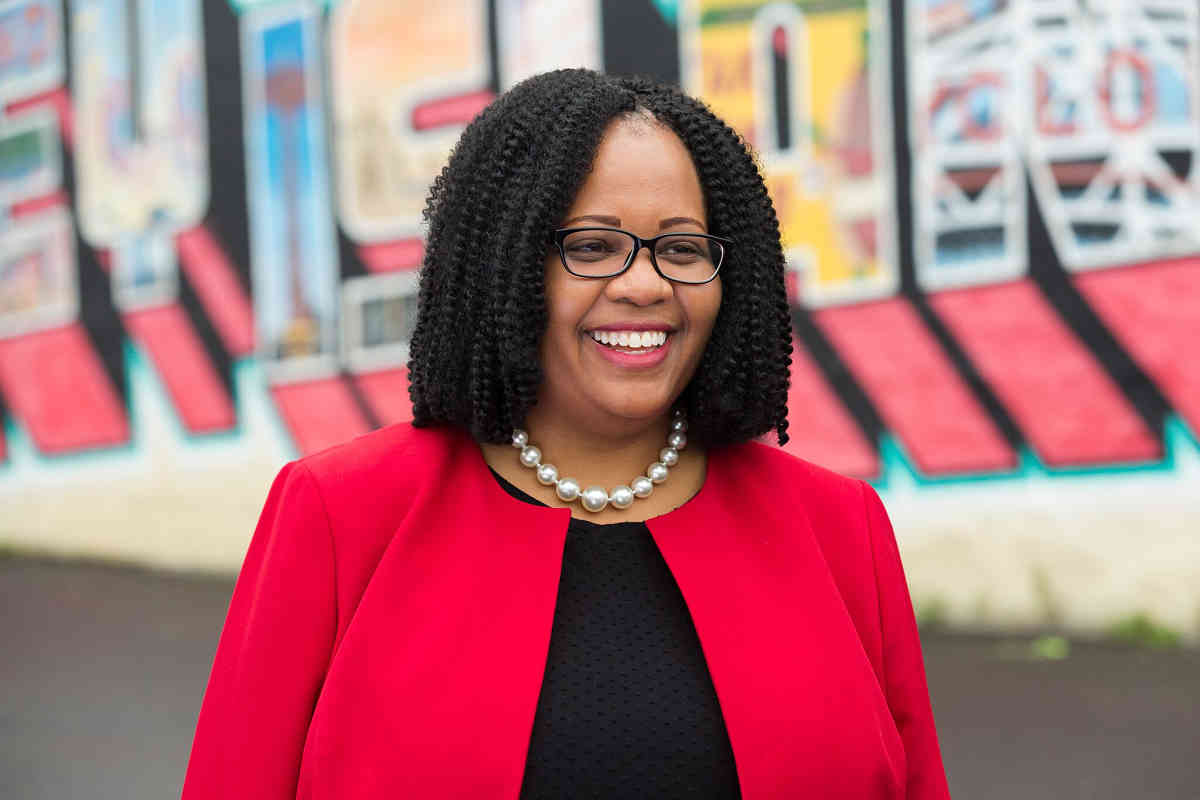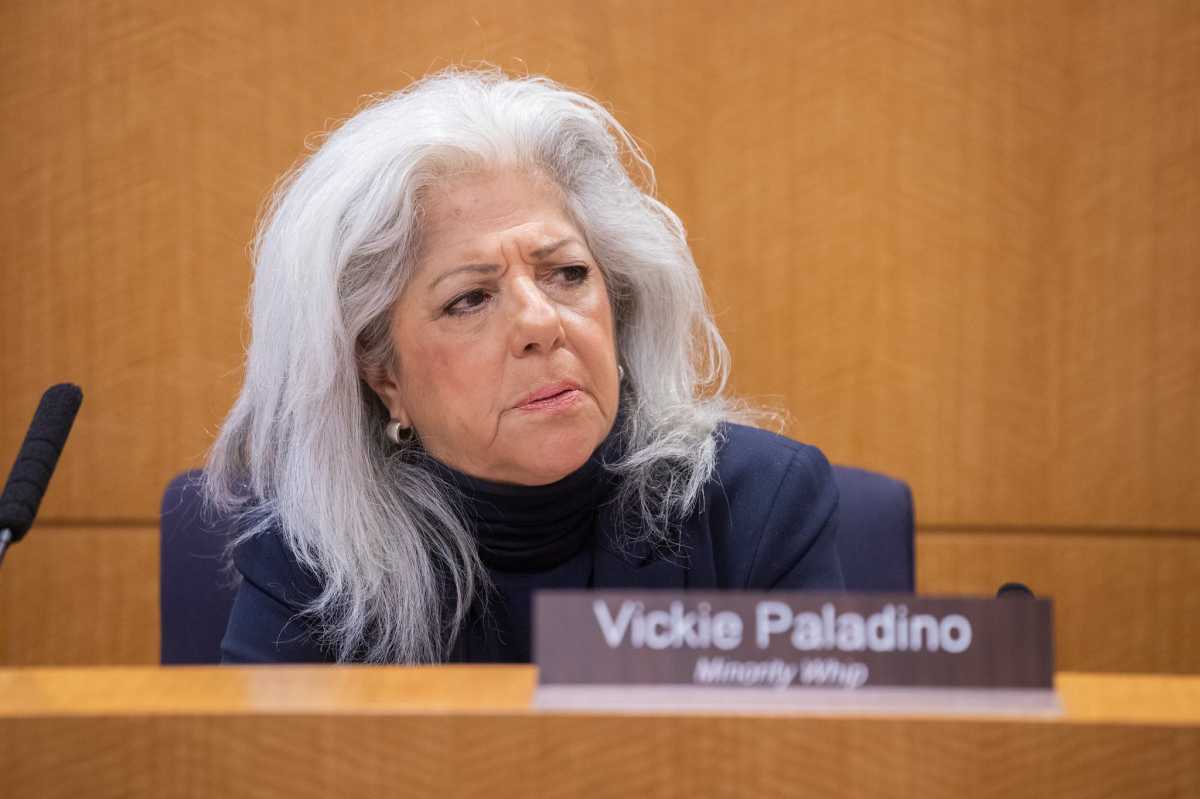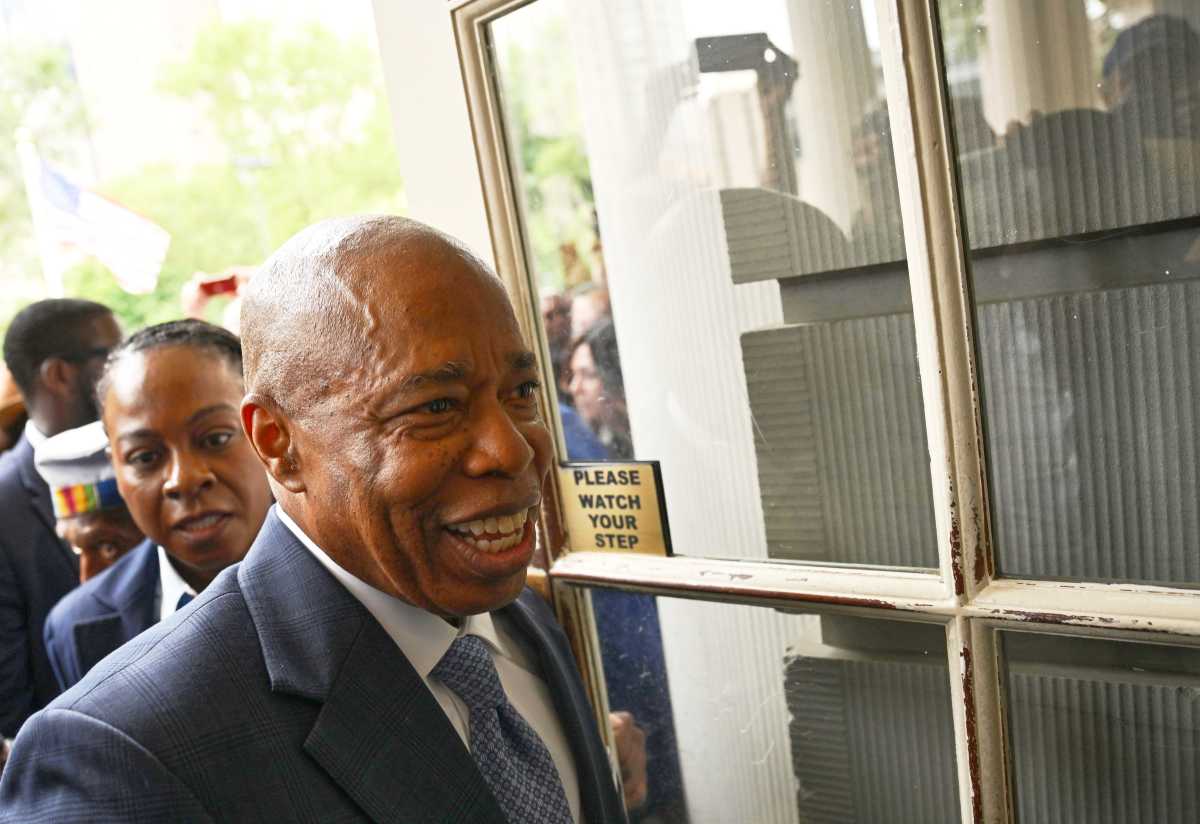Democrat Mathylde Frontus is ready to hit the ground running in Albany after the political newcomer defeated her Republican challenger to win the Coney Island Assembly seat vacated by disgraced pol and convicted felon Pamela Harris in November’s general election. Frontus, a university professor who has never held elected office, talked to us about how her career teaching and practicing social work prepared her to represent the 46th Assembly District — which, in addition to her native Coney Island, includes and parts of Bay Ridge, Dyker Heights, Bath Beach, Brighton Beach, and Gravesend. The newly inducted Assemblywoman — whom Assembly Speaker Carl Heastie swore into office early on Nov. 15 due to the seat being vacant — identified what issue she wants to tackle first in office, and her plans for boosting commerce and civic engagement in her district. Read on for the full interview:
Julianne McShane: You’re new to elected office. How has your career prepared you to be an Assemblywoman?
Mathylde Frontus: I come from the field of social work , which is one of the most-compatible backgrounds with public service. My career gave me a crash course in human beings and understanding how to meet people where they are, along with learning how to be a good listener, how to help people with their problems, and how to lead. Leadership is about moving things along, not staying where we are.
JM: The neighborhood is changing and faces a lot of issues, including development, unemployment, poverty, and concerns about the environment and resiliency. What’s the first thing you want to tackle in Albany?
MF: I want to wrap my mind around what’s happening with housing, and one way or another I will be proposing legislation that has to do with affordability. Right now the way that we have it is a one-size-fits all, because area median income [the statistic used to determine eligibility for affordable housing in the city] is federally determined. But census data allows you to see how much people are making and where, block by block. To me that makes more sense, because it uses more of a magnifying glass. I’d like to see us be more creative in terms of how we talk about affordability.
JM: You support the ethics-reform legislation, the Public Officers Accountability Act, which would require making the appropriation of state discretionary funds public if it passes. How else do you plan to rebuild trust within the community after your predecessor was convicted of stealing thousands of dollars meant for superstorm Sandy–relief?
MF: I’m stunned that in a big state like New York, we can’t just type a couple of words into our smartphones and see what Assembly members have allocated money to. I’ve tried to be totally transparent from day one. A year ago nobody knew who I was in parts of the district. I took my time, quietly going to meetings, getting involved, volunteering, getting to know people on a first-name basis. That’s how you build trust: it’s being present, showing up, keeping your word, and operating from a place of integrity.
JM: Roughly 12 percent of storefronts in Coney’s major commercial corridors are vacant — almost twice the city’s average — according to a report by the Department of Small Business Services. What will you do to bring that commerce back?
MF: I will work very closely with the city’s small-business agency, and with mom-and-pop shops throughout the district. Coney Island is without a doubt in need of economic prosperity, vitality, and mobility. The flip side is that we don’t want growth to be at small-business owners’ expense. I’m interested in attracting new businesses to Coney that fit in the community and hire locally, but not making it a competition.
JM: On the campaign trail you consistently talked about starting a community organization you described as a think tank. Can you talk a little more about that project, and how you will accomplish it?
MF: It’s about people power. I’m tired of folks being on the outside looking in, and thinking that politics is this mysterious, secret society that only some people have access to. That’s not true. I’d like for people to know how bills are written, and maybe even to work on legislation with the community. We’re going to brainstorm the mechanics of the think tank eventually, but it’s a little premature now. I’m still building my team.
JM: How do you plan to work with your constituents who voted for your Republican challenger, Steven Saperstein?
MF: I plan on meeting with some Republicans to talk about how I can best serve those voters. Saperstein got more than 10,000 votes, which is nothing to sneeze at — it’s not insignificant.
JM: People have asked about your relationship with local activist Ronald Stewart, and his connection with the Nation of Islam, which the Southern Poverty Law Center deems a hate group. Can you comment on your relationship with Stewart, and will you give him a job in your office?
MF: I met Ronald Stewart in 2007, and indeed we became close friends and colleagues. He’s become like a father figure. Stewart was also a childhood friend of Pamela Harris — they grew up together — and I would just like to say that during the entire Assembly race that Pam ran, no one ever said a peep about Ron, or that he was one of her closest allies. That no one ever said anything about him before, and now they care, is a double standard.
He’s not going to be on my staff — he’s retired. I feel very uncomfortable criticizing anybody’s faith, to me that crosses the line. I believe firmly in freedom of religion, insofar as a person is not part of a wild cult. And I strongly condemn anything inappropriate said by [Nation of Islam leader Louis Farrakhan].
JM: Will you continue teaching at New York and Columbia universities while serving as Assemblywoman, since you’re only in Albany from January through June?
MF: I’m interested in doing it, more for the students than for me. This new role’s going to keep me very busy, but I have such a commitment to teaching. Maybe I will, maybe I won’t, I have to just see if it works out.























